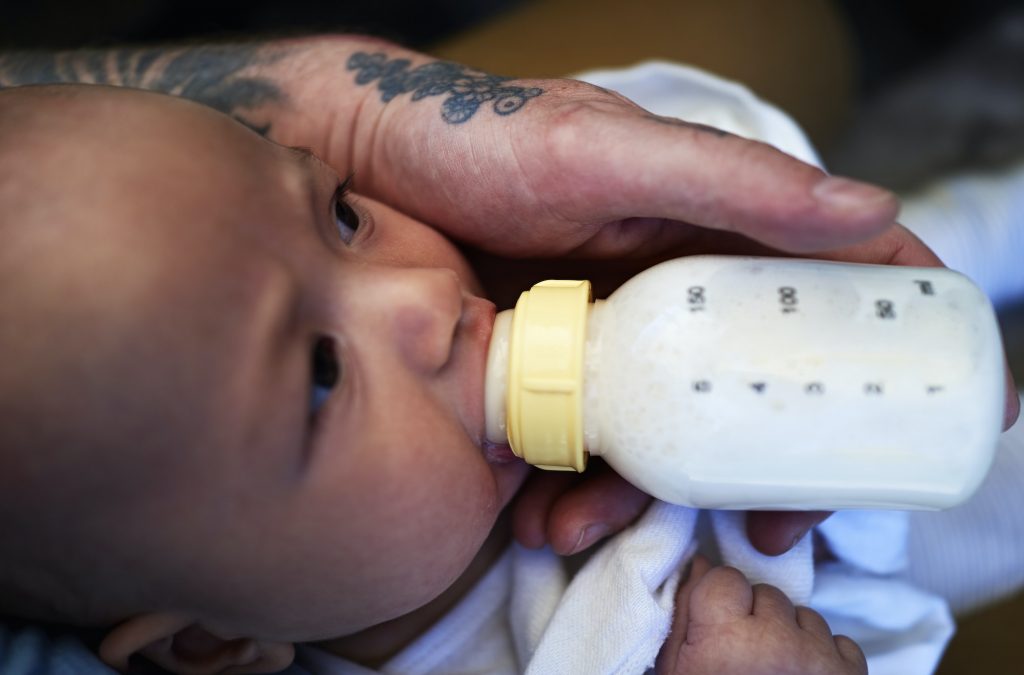New research shows both breastfeeding and combi-feeding may prevent children developing special educational needs.
Hot on the heels of another study linking higher GCSE results to breastfed infants, this new research is the first to investigate the effect of mixed feeding on the development of special educational needs.
A new study has found that both breastfeeding and combi-feeding with formula may protect against the development of special educational needs (SEN) in children.
The research, published in PLOS Medicine, follows a recent study that suggested teens who are breastfed as infants go on to achieve better GCSE results than those who weren’t. Drawing criticism from mums for piling on the guilt, the controversial study was slammed on social media for causing ‘clickbait’ headlines, and creating a divide between families who choose to formula feed and those who exclusively breastfeed.
Unlike previous studies, researchers for this new study were keen to understand the effect of mixed-feeding on the development of SEN – choosing to include babies who were given a combination of breastmilk and formula for the first six months of life.
Collecting data from maternity, birth and health visitor databases in Scotland, the authors were able to understand how feeding methods were contributing to educational outcomes.
Results showed that, when compared to children who were formula fed, the exclusively breastfed and combi-fed children both had lower risk of learning difficulties and disabilities.
It also observed that exclusively breastfed children were less likely to develop communication problems, social–emotional–behavioural difficulties, sensory impairments, physical motor disabilities, and physical health conditions.
What do these studies mean for mixed-feeding families?
For women who struggle to breastfeed for the full six months recommended by WHO, this study suggests that even a short duration of non-exclusive breastfeeding could still be beneficial for their child’s development.
Maternal health brand Lansinoh’s resident midwife, Emily Butterworth, says that this research is encouraging for mums who choose to combi-feed.
“Some mums often give up breastfeeding thinking that combi-feeding has little or no advantage. Showing that any amount of breastmilk is beneficial might encourage this group of mothers to continue offering breastmilk for longer.”
Emily, a qualified IBCLC, also says that including combi-fed infants in this type of research could also encourage women to breastfeed for longer, without feeling the pressure of having to juggle exclusive breastfeeding around work and other life commitments.
“Often women give up breastfeeding thinking there is no point if they can’t do it exclusively or for six months as recommended by WHO. Understanding the benefits of combi-feeding could give mums the confidence to try breastfeeding.”
“Often women give up breastfeeding thinking there is no point if they can’t do it exclusively or for six months as recommended by WHO“
The findings of this study not only solidify the existing evidence base for the advantages of breastfeeding, but it also reinforces the importance of breastfeeding education and support, from pregnancy and throughout the postnatal period.
“We know that mums who stop breastfeeding sooner than they want to is due to feeding difficulties and lack of adequate support[1],” Emily says. “There are so many things that could improve this, but in the first instance it starts from having more specialist breastfeeding support in the hospital, and at home in the crucial first few days and weeks.”.
[1] Fox, R., McMullen, S., & Newburn, M. (2015). UK women’s experiences of breastfeeding and additional breastfeeding support: a qualitative study of Baby Café services. BMC pregnancy and childbirth, 15, 147. https://doi.org/10.1186/s12884-015-0581-5
